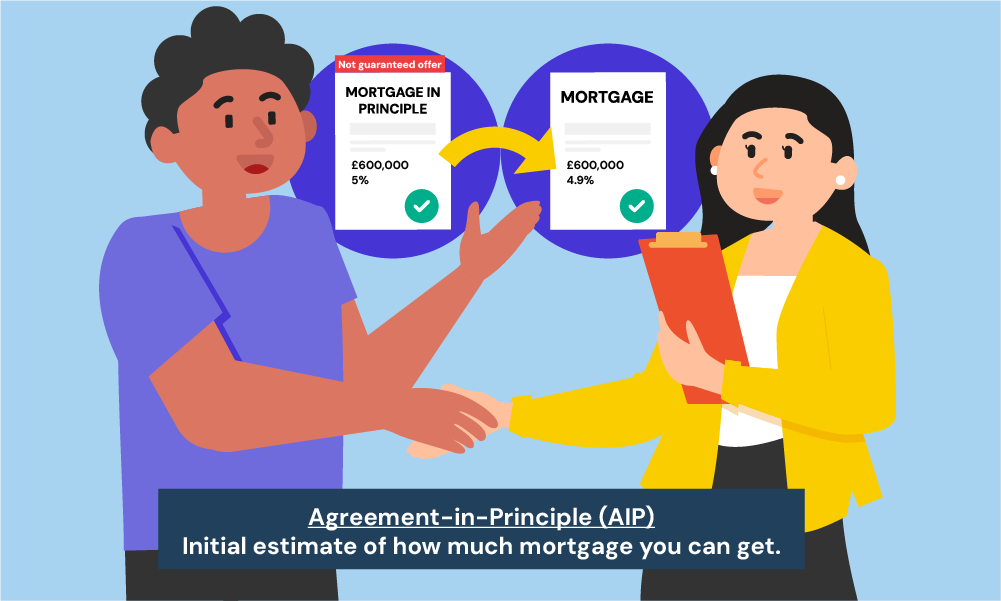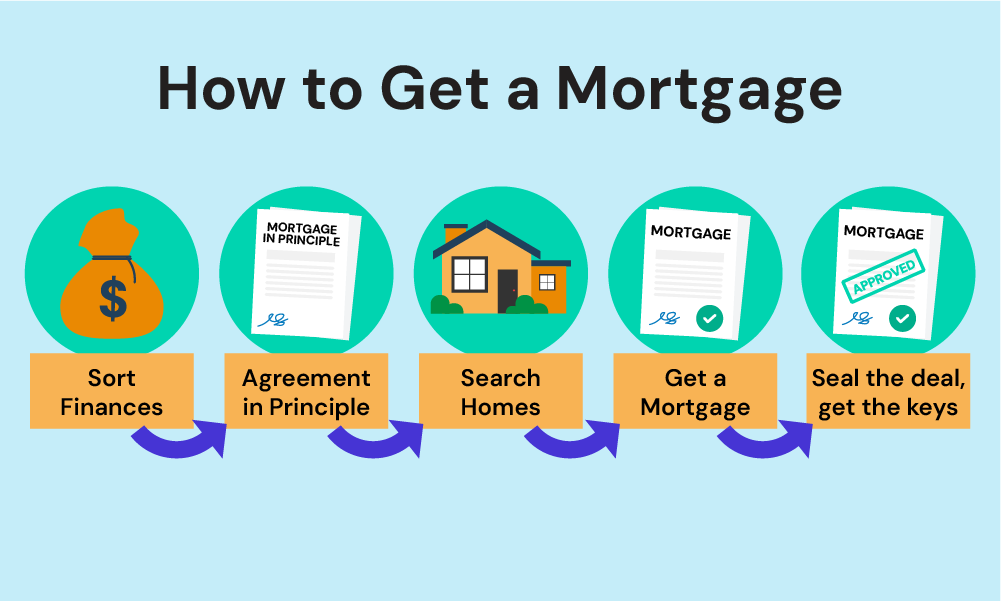- What is an Interest-Only Mortgage?
- Should You Get an Interest-Only Mortgage as a First-Time Buyer?
- Is an Interest-Only Mortgage a Good Idea?
- How To Get an Interest Only Mortgage as a First Time Buyer?
- How Much Can You Borrow with an Interest-Only Mortgage?
- How Do You Pay Back the Loan?
- What Are the Alternatives?
- Key Takeaways
- The Bottom Line: Is an Interest-Only Mortgage Right for You?
Should You Get Interest Only Mortgages for First Time Buyers?

You’re on the brink of buying your first home, and you’ve probably heard a lot of talk about interest-only mortgages.
Lower monthly payments, more flexibility with your money – what’s not to like?
But before you jump in, it’s worth knowing exactly how this type of mortgage works and whether it’s a good idea for someone just starting out in the property game.
Let’s explore what an interest-only mortgage could mean for you and your future as a homeowner.
What is an Interest-Only Mortgage?
An interest-only mortgage means you only pay the interest on the loan. This keeps your monthly repayments low, but here’s the catch: you’re not chipping away at the actual loan amount.
That means at the end of the mortgage term (usually around 25 years), you still owe the entire sum you borrowed.
Sounds simple enough, right? But you’ve got to be prepared for what happens at the end of that term.
You’ll need to either sell the house, remortgage, or dig into your savings to clear the debt.
So while your monthly payments might feel manageable now, the big question is – will you be able to cover the final bill later on?
Should You Get an Interest-Only Mortgage as a First-Time Buyer?
Good question! The truth is, first-time buyer interest-only mortgages aren’t super common, and there’s a reason for that.
Most lenders are a bit wary about offering this kind of deal to newbies in the housing market.
Why? Because they want to be confident you can pay back the loan when the time comes. And let’s face it, that’s a bit harder to guarantee when you’re just starting out.
But don’t worry – it’s not impossible.
There are a handful of lenders out there who are willing to give first-time buyers a chance with interest-only mortgages, but they tend to have stricter criteria.
You’ll probably need a big deposit (think 20-40% of the property’s value), a solid income, and a pretty good credit score.
If you tick all those boxes, you might be in with a shot!
Is an Interest-Only Mortgage a Good Idea?
This is where things get interesting. Whether or not an interest-only mortgage is a good idea depends on your situation.
If you’ve got a solid plan to pay off the loan when the term ends – maybe you’re expecting an inheritance, or you’ve got a side hustle that’s about to take off – then it could work for you.
However, if you’re not entirely sure how you’ll pay off the capital in 25 years, this might not be the best route.
It’s a bit like kicking the can down the road – eventually, you’ll have to deal with that big lump sum, and you don’t want to be caught off guard.
How To Get an Interest Only Mortgage as a First Time Buyer?
If you’ve decided that an interest-only mortgage could work for you, the next step is knowing how to actually get one.
Here’s how to get started:
1. Assess Your Eligibility
The first step is to check if you meet the criteria for an interest-only mortgage. Lenders typically look for:
- A high income (usually £75,000+ for a sole applicant or £100,000+ for joint applicants).
- A substantial deposit (usually 20-40% of the property value).
- A strong credit score and good financial history. Make sure you have these basics in place before approaching lenders.
2. Prepare a Solid Repayment Plan
Lenders will want to know how you plan to repay the loan at the end of the term. This could be through selling the property, remortgaging, or using savings or investments. Have a clear strategy in mind, as you’ll need to present this during your application.
3. Speak to a Mortgage Broker
Since interest-only mortgages are not as widely available, especially for first-time buyers, it’s a good idea to work with a mortgage broker.
A good broker can help you find niche lenders who offer these products and guide you through the process. They’ll also help package your application in the best way possible to improve your chances of approval.
4. Get Your Documents Ready
To apply, you’ll need to gather all the necessary paperwork. This usually includes:
- Proof of income (payslips, tax returns if self-employed).
- Bank statements.
- Proof of deposit.
- Credit report.
- Identification documents (passport or driver’s licence). Having everything ready will make the application process much smoother.
5. Apply for an Agreement in Principle (AIP)
An Agreement in Principle is essentially a lender’s offer to loan you a certain amount, subject to a full application.
It’s a good idea to get an AIP before you start house-hunting, as it gives you a clear idea of what you can borrow and shows sellers that you’re a serious buyer.

6. Submit Your Full Mortgage Application
Once you’ve found the property you want to buy, it’s time to submit your full application. This will include a detailed review of your finances, the property’s value, and your repayment plan.
Your lender may ask for additional documents at this stage, so be prepared to provide further information if needed.
7. Await the Valuation and Offer
The lender will carry out a valuation of the property to ensure it’s worth the loan amount. If everything checks out, they’ll make a formal mortgage offer.
Review this carefully with your broker before accepting it.
8. Complete the Purchase
Once the offer is accepted, it’s time to complete the legal side of the purchase.
Your solicitor will handle the transfer of funds and legal documents, and once everything is finalised, you’ll get the keys to your new home.
Congratulations, you’re a homeowner! 🎉

How Much Can You Borrow with an Interest-Only Mortgage?
With interest-only mortgages, lenders are usually a bit more cautious.
The amount you can borrow often depends on your income – most lenders will cap it at about 4.5 times your salary.
So, if you’re earning £30,000 a year, you might be able to borrow around £135,000.
But remember, with interest-only, you’ll also need a chunk of savings to put down as a deposit – typically at least 20%.
The bigger your deposit, the better deal you’re likely to get, so it’s worth saving up as much as you can before you apply.
How Do You Pay Back the Loan?
With a first-time buyer interest-only mortgage, you’ll need a clear plan for how you’re going to pay back the loan at the end of the term.
Lenders won’t accept “I’ll figure it out later” as an answer – they’ll want to know how you plan to cover that big payment when the time comes.
Here are a few common strategies:
- Sell the property. If house prices go up, you might be able to sell the property and use the profits to pay off the loan. But, of course, house prices can also go down, so this isn’t a guaranteed solution.
- Savings or investments. If you’ve got a solid savings plan or investments in place (like a stocks and shares ISA or a pension), you could use those to pay off the loan at the end of the term.
- Remortgage. You could switch to a repayment mortgage later on, where you start paying off the capital as well as the interest. Just keep in mind that your monthly payments will go up when you do this.
- Inheritance. While not something you can always rely on, some people plan to use an expected inheritance to cover the repayment. Timing and personal circumstances can make this option less predictable, so it’s best not to solely depend on this strategy.
- Equity release. If you’re over 55, you could consider releasing equity from your property to pay off the loan. This lets you borrow against your home value without having to sell it. But it’s usually only available to older borrowers and might reduce the inheritance you leave behind.
- Endowment policies. If you’ve been paying into an endowment policy alongside your mortgage (a popular option in the past), this could provide the funds needed to repay the loan. While these policies are less common now, some older mortgage holders may still have them in place.
What Are the Alternatives?
If an interest-only mortgage isn’t looking like the best fit for you, don’t worry – there are other options out there.
For instance, you could go for a traditional repayment mortgage where you pay off both the interest and the loan amount over time.
Sure, the monthly payments will be higher, but at least you’ll own your home outright at the end.
Or you could try a part-and-part mortgage, which is a bit of a halfway house. With this option, you pay off some of the capital as you go.
But not all of it, so your monthly payments are lower than with a full repayment mortgage, but you still reduce your debt over time.
Key Takeaways
- An interest-only mortgage means lower monthly payments, but you’ll need to pay off the full loan at the end.
- First-time buyers can get an interest-only mortgage, but it’s not easy – you’ll need a big deposit, a solid income, and good credit.
- This type of mortgage is best for buyers with a clear repayment plan, like selling the property or using savings.
- Alternatives include repayment mortgages or part-and-part mortgages, which help reduce your debt over time.
The Bottom Line: Is an Interest-Only Mortgage Right for You?
At the end of the day, whether or not an interest-only mortgage is right for you depends on your financial situation and long-term plans.
If you’ve got a clear repayment strategy and need to keep your monthly payments low for now, it could be a smart move.
But if you’re unsure how you’ll pay off the loan down the line, it might be better to explore other options.
The key is to do your research, weigh up the pros and cons, and speak to a mortgage broker who can help you find the best deal for your needs.
Looking for the right broker? Get in touch with us. We’ll connect you with a reliable broker who can help you solve your specific mortgage situation.
Get Matched With Your Dream Mortgage Advisor...

Frequently asked questions
Is it hard to qualify for an interest-only mortgage?
Yes it can be tough, especially if you’re a first-time buyer. Lenders have strict criteria because these loans are considered higher risk.
You’ll need a high income (think £75,000+ or £100,000+), a big deposit (20-40%), and a good credit history. You’ll also need a plan for paying back the loan when it ends.
A mortgage broker can help you find lenders that offer these mortgages and guide you through the application process.
What is the most common mortgage for first time buyers?
A repayment mortgage is usually the best for first-time buyers. With this type, your monthly payments pay off both the interest and the loan, so you own the property by the end. Repayment mortgages are popular because they’re easier to get and offer a clear path to homeownership.
What type of loan is best for first time buyers?
A fixed-rate repayment mortgage is often the best. This means your monthly payments stay the same for a set period, usually 2 to 5 years.
It’s great for financial stability and budgeting, especially when you’re starting out. When the fixed-rate period ends, you can look at other options.




